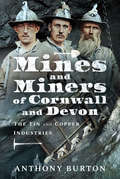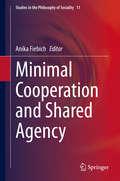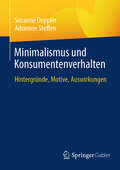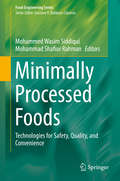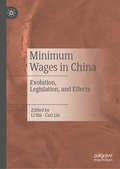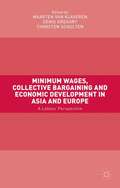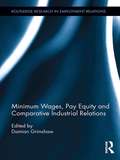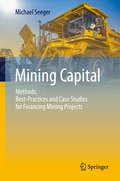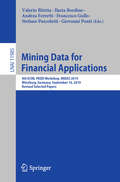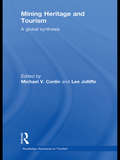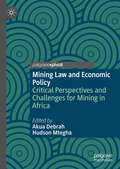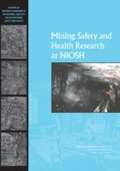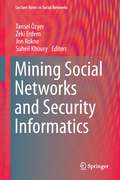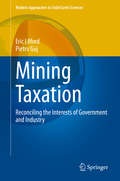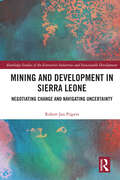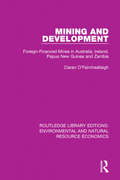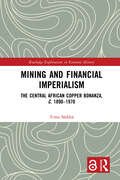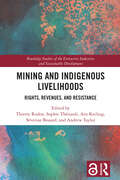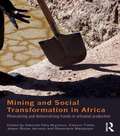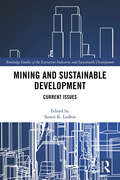- Table View
- List View
Minerva 2004: Discovery
by Benjamin Weinstock John D. WellsAfter nearly five years in operation, Doctor Cynthia Bamdad, founder and CEO of Minerva Biotechnologies Corporation (Minerva), was reflecting on the company's next steps. In a few short years, she and her small team had managed to develop a nanoparticle process for testing new drugs that was orders of magnitude faster than traditional approaches. Using this process, they had discovered the mechanism that caused 96% of all breast cancers and identified families of small molecule therapeutics that were effective in blocking this mechanism in live cells in the laboratory. Moreover, Bamdad did not think it would be long before the company could offer an early warning diagnostic for breast cancer, which would allow less invasive treatment of the condition. The company had filed several families of patent applications in support of these claims, but the challenge was funding. To date, Bamdad had relied on Federal Government grants and angel investors to fund the research, but the next steps would require much larger investment. Should Minerva seek to commercialize its drug development technology to help fund the riskier steps of drug development? Should it focus on a diagnostic which would make current treatments more effective? Should it license its small molecule therapeutics to one of the many well-funded companies seeking cures for cancer? Or should Bamdad raise capital to support tests in mice in order to reach the Federal Drug Administration IND (Investigational New Drug) application stage of drug discovery? This would allow clinical trials in humans, which would require more capital, but an IND would increase the value of Minerva's intellectual capital substantially. What should Bamdad do?
Minerva 2010: Turbulent Times
by John R. Wells Benjamin WeinstockIn 2010, amid a flurry of new discoveries, Cynthia Bamdad, founder and CEO of Minerva Biotechnologies Corporation (Minerva), raised $6.6 million to test her new cancer drugs in mice. It had been more than 6 years since she had announced that she and her small team at Minerva had identified the mechanism that caused 96% of all breast cancers and had discovered a number of small molecule drugs and antibodies to block it. Funding the next stage of development had proven very difficult, but, undeterred, Bamdad had raised enough to keep her laboratory open and continue her research work. In the process, she made the startling discovery that the "cancer" mechanism she had discovered was an integral part of the production of all human embryonic stem cells, and that cancer was a result of this mechanism going awry. As a result, Minerva developed the ability to produce high-quality stem cells, which opened up a whole range of new commercial opportunities for the company, including advanced therapeutics and processes for growing and replacing human cells of all types. However, resources were limited. Where should she focus her efforts?
Minerva 2020: Clinical Trials
by John R. Wells Benjamin WeinstockIn March 2020, Dr. Cynthia Bamdad, founder and CEO of Minerva Biotechnologies Inc. (Minerva), was reviewing the first results of human clinical trials for the company's novel CAR-T drug therapeutic, one of the first ever to target solid cancer tumors. The results looked promising. CAR-T therapeutics were a new field attracting a lot of scientific interest. They involved genetically re-engineering a patient's T-cells, a key element of the human immune system, to attack the cancer. The first CAR-T treatments for cancer were developed for the relatively small field of blood cancers, 7% of all cancers. For instance, early pioneer Kite Pharma Inc. (Kite) developed a treatment for a special type of lymphoma that only affected 7,500 patients a year. Still, the financial interest was huge, and Kite was acquired by Gilead Sciences Inc. in August 2017 for $11.9 billion. Similarly, Juno Therapeutics Inc. was acquired by Celgene Corporation for $9 billion in January 2018. Minerva's therapeutics targeted 96% of all breast cancers and 46% of prostate cancers, a market that was orders of magnitude larger. After 21 years, Bamdad believed that Minerva was on the threshold of something really big. Should Bamdad sell the business and work within a larger organization? Or should she IPO and continue to develop the company's long-term pipeline of therapeutics and diagnostics?
Mines and Miners of Cornwall and Devon: The Tin and Copper Industries
by Anthony BurtonThe eminent historian and author of The Rise of King Cotton uncovers the centuries-old story of tin mining in Southern England.Tin mining has existed in Cornwall and parts of Devon since before the Romans arrived in Britain. In this book, historian Anthony Burton explores the region’s tin mining industry from its earliest period through to the present day.A specialist in the history of technology, Burton examines the evolution of extraction methods from primitive pick and shovel operations to the later use of explosives, the rise of steam power, and beyond. Burton also looks at the changing politics and economics of the tin mining industry over the centuries.
Minilateralism
by Chris BrummerEconomic diplomacy is changing. The multilateral organizations that dominated the last half of the twentieth century no longer monopolize economic affairs. Instead, countries are resorting to more modest 'minilateral' strategies like trade alliances, informal 'soft law' agreements, and financial engineering to manage the global economy. Like traditional modes of economic statecraft, these tools are aimed at both liberalizing and supervising international financial policy in a world of diverse national interests. But unlike before, they are specifically tailored to navigating a post-American (and post-Western) world where economic power is more diffuse than ever before. This book explains how these strategies work and reveals how this new diplomatic toolbox will reshape how countries do business with one another for decades to come.
Minimal Cooperation and Shared Agency (Studies in the Philosophy of Sociality #11)
by Anika FiebichThis volume examines minimality in cooperation and shared agency from various angles. It features essays written by top scholars in the philosophy of mind and action. Taken together, the essays provide a genuine contribution to the contemporary joint action debate.The main accounts in this debate present sufficient rather than necessary or minimal criteria for there to be cooperation. Much discussion in the debate deals with robust rather than more attenuate and simple cases of cooperation or shared agency. Focusing on such minimal cases, however, may help to explain how cooperation comes into existence and how minimal cooperation interrelates with more complex cases of cooperation. The contributors discuss minimality in cooperation by focusing on particular aspects. For example, they consider how social roles might deliver minimal cooperation constraints or what the minimal contextual criteria are for cooperation to emerge.Readers will find the answers to these and other questions: What is minimally cooperative behavior? By what steps could full members of a society organized by conventions, norms and institutions be constructed from creatures with minimal social skills and cognitive abilities? What do we experience of actions when we act together with a purpose?
Minimalismus und Konsumentenverhalten: Hintergründe, Motive, Auswirkungen
by Adrienne Steffen Susanne DopplerDieses Buch liefert einen Einblick in die theoretischen Grundlagen des minimalistischen Konsums. Durch die Analyse von 20 Tiefeninterviews mit Minimalisten und die Integration neuester wissenschaftlicher Erkenntnisse entsteht zunächst eine präzise datenbasierte Definition dieses Lebensstils. Es werden nicht nur die Motive, die Menschen zu einem minimalistischen Lebensstil bewegen beleuchtet, sondern auch die Auswirkungen auf ihr persönliches Wohlbefinden, ihre allgemeine Lebenssituation (z. B. Arbeit, Familie, soziales Umfeld), ihr Kaufverhalten sowie ihre finanzielle Situation herausgearbeitet. Die Autorinnen schließen mit praxisrelevanten Handlungsempfehlungen für das Produktmanagement, Produktmarketing und die Personalabteilungen von Unternehmen.
Minimally Processed Foods
by Mohammed Wasim Siddiqui Mohammad Shafiur RahmanThe safety and efficacy of minimal food processing depends on the use of novel preservation technologies. This book first examines what is meant by minimally processed foods, including fresh-cut, cooked-chilled, and part-baked products. Next explored are the technologies or methods to produce quality products in terms of safety and nutrition, including: edible coating, natural preservatives (i. e. , antimicrobial, flavour enhancer, anti-browning), advanced packaging (active, antimicrobial, and modified or controlled atmosphere), and selected non-thermal techniques (high pressure, pulsed electric field, ultrasound, light). Preservation of food is crucial to achieving a secure and safe global food supply with the desired sensory quality. In addition, the increasing consumer demand for safe, ready-to-serve, ready-to-eat-and-cook products with minimal chemical preservatives has raised expectations. However, foods deemed minimally processed, such as fresh-cut fruits and vegetables, cooked-chilled, and half-baked foods, are delicate products that need special care in preparation, processing, storage, and handling. As a result, new technologies to develop minimally processed foods have aggressively advanced. Minimally Processed Foods: Technologies for Safety, Quality, and Convenience explores both the definition of minimally processed foods and the methods and technologies used to achieve the safety and nutritional value consumers demand. About the Editors Mohammed Wasim Siddiqui, Bihar Agricultural University, Sabour, Bhagalpur, India Mohammad Shafiur Rahman, Sultan Qaboos University, Al-khod, Oman
Minimum Wages in China: Evolution, Legislation, and Effects
by Shi Li Carl LinThis book considers the positive and negative impacts of the minimum wage policy in China. Since China enacted its first minimum wage law in 1994, the magnitude and frequency of changes in the minimum wage have been substantial, both over time and across jurisdictions. The results from China’s experience show that rapidly increasing minimum wages have helped increase average wages and reduce the gender wage gap, income inequality, and poverty. However, the fast-rising minimum wage has also resulted in the loss of employment for young adults, women, low-skilled workers, and migrant workers. Additionally, higher minimum wages have a negative impact on firm profitability and adverse effects on firm’s human capital investment. In summary, the Chinese minimum wage policy has shown both positive and negative impacts on the affected workers. Through unpacking these findings, the book highlights the importance of rigorous research to inform evidence-based policymaking and provides lessons for other transitional and developing economies.
Minimum Wages, Collective Bargaining and Economic Development in Asia and Europe
by Maarten Van Klaveren Denis Gregory Thorsten SchultenMinimum Wages, Collective Bargaining and Economic Development in Asia and Europe offers a labour perspective on wage-setting institutions, collective bargaining and economic development. Sixteen country chapters, eight on Asia and eight on Europe, focus in particular on the role and effectiveness of minimum wages in the context of national trends in income inequality, economic development, and social security. Two chapters on Asia and Europe compare and contrast national experiences and discuss the relevance of a redistributive wages policy for worldwide as well as national economic recovery. Demand or wage-led economic recovery is explored as an alternative to the export-led strategies currently pursued by leading Asian and European countries. In light of the slow pace of recovery from recession in Europe, the renewed recession in Japan and the weakening growth rates of major Asian countries, this book provides a timely reconsideration of the macroeconomic policy options. As such, it contributes to the wider debate over sustainable economic growth and income inequality.
Minimum Wages, Pay Equity, and Comparative Industrial Relations (Routledge Research in Employment Relations #30)
by Damian GrimshawWith growing concern about the conditions facing low wage workers and new challenges to traditional forms of labor market protection, this book offers a timely analysis of the purpose and effectiveness of minimum wages in different European countries. Building on original industry case studies, the analysis goes beyond general debates about the relative merits of labor market regulation to reveal important national differences in the functioning of minimum wage systems and their integration within national models of industrial relations. There is no universal position on minimum wage policy followed by governments and social partners. Nor is it true that trade unions consistently support minimum wages and employers oppose them. The evidence in this book shows that interests and objectives change over time and differ across industries and countries. Investigating the pay bargaining strategies of unions and employers in cleaning, security, retail, and construction, this book’s industry case studies show how minimum wage policy interacts with collective bargaining to produce different types of pay equity effects. The analysis provides new findings of ‘ripple effects’ shaped by trade union strategies and identifies key components of an ‘egalitarian pay bargaining approach’ in social dialogue. The lessons for policy are to embrace an inter-disciplinary approach to minimum wage analysis, to be mindful of the interconnections with the changing national systems of industrial relations, and to interrogate the pay equity effects.
Mining Capital: Methods, Best-Practices and Case Studies for Financing Mining Projects
by Michael SeegerMining is a capital-intensive industry, and involves long lead times to develop projects that demand a structured approach, from mine exploration to exit. This book provides mine developers, investors, owners, shareholders, and mineral policymakers a comprehensive game plan to raise capital for the development of new mining projects or to bolster operational mines. The author, an experienced mining capital consultant, shows how mine developers and mine owners can secure capital in any phase of the commodity price cycle, at any site, and at any project stage. The book follows a proven and structured approach that enables mine developers and owners to successfully raise capital for their projects. With the aid of case studies and practical methods, the reader will learn the essentials on topics ranging from developing and marketing a business case for investment, to the types and sources of mining capital for different project stages, as well as the structure and significance of due diligence. The author presents actual mining projects and their funding plans, transaction structures and term sheets for capital. The mining projects discussed represent various project stages, commodities, and parts of the globe, offering a comprehensive reference guide for mine developers, investors and promoters alike.
Mining Data for Financial Applications: 4th ECML PKDD Workshop, MIDAS 2019, Würzburg, Germany, September 16, 2019, Revised Selected Papers (Lecture Notes in Computer Science #11985)
by Valerio Bitetta Ilaria Bordino Andrea Ferretti Francesco Gullo Stefano Pascolutti Giovanni PontiThis book constitutes revised selected papers from the 4th Workshop on Mining Data for Financial Applications, MIDAS 2019, held in conjunction with ECML PKDD 2019, in Würzburg, Germany, in September 2019. The 8 full and 3 short papers presented in this volume were carefully reviewed and selected from 16 submissions. They deal with challenges, potentialities, and applications of leveraging data-mining tasks regarding problems in the financial domain.
Mining Heritage and Tourism: A Global Synthesis (Routledge Advances in Tourism)
by Michael V. ConlinMany former mining areas have now lost their industrial function and are now turning to tourism for regional revitalization and community economic development. The transformation process of these industrial, and in some cases derelict, mining sites and landscapes into an area of interest for tourists is a major challenge both for planners and for tourism managers. It involves complex consideration to both the preservation of the physical site and community mining heritages as well as the health, safety and environmental factors inherent in opening these vast sites to the public. Mining Heritage and Tourism includes contributions from internationally recognized authorities and is the first book to focus on the issues, challenges and potentials in redeveloping mines as cultural heritage attractions which are explored thematically throughout the book. It draws on multidisciplinary research to consider the dichotomy between heritage preservation and tourist development goals for mining heritage sites as well as to explore the practical challenges of developing these sites. These themes are illustrated by case studies from a vast range of geographical locations around the globe to offer operational insights into the planning and management of these sites for both heritage and tourism purposes, as well as innovative site management techniques. There has never before been a more comprehensive book on mining heritage tourism representing the latest developments in strategy, policy and practices. This book serves as an invaluable guide for students, researchers, academics and practitioners in the areas of Tourism and Heritage Management.
Mining Law and Economic Policy: Critical Perspectives and Challenges for Mining in Africa
by Akua Debrah Hudson MteghaThis book explores the impacts of current mining licensing regimes in Africa and how they influence sustainable development principles. International law and conventions on mining are used as a lens to examine a regionalized perspective of the history of mining law and customary land law. Alternative approaches are then suggested, through a comparative and sovereignty-based study of mining laws and policies, to see how the challenge of uneven development can be combatted using minerals.This book aims to highlight how mineral possessions can transform communities if the economic policies, customary law structures, and the geopolitical landscape guarantee inclusivity and equal partnerships. It will be relevant to researchers and policymakers interested in mineral economics, mining law, and African economies.
Mining Safety and Health Research at NIOSH: Reviews of Research Programs of the National Institute for Occupational Safety and Health
by National Research Council Institute of Medicine of the National AcademiesThe U.S. mining sector has the highest fatality rate of any industry in the country. Fortunately, advances made over the past three decades in mining technology, equipment, processes, procedures, and workforce education and training have significantly improved safety and health. The National Institute for Occupational Safety and Health (NIOSH) Mining Safety and Health Research Program (Mining Program) has played a large role in these improvements. An assessment of the relevance and impact of NIOSH Mining Program research by a National Research Council committee reveals that the program makes essential contributions to the enhancement of health and safety in the mining industry. To further increase its effectiveness, the Mining Program should proactively identify workplace hazards and establish more challenging and innovative goals toward hazard reduction. The ability of the program to successfully expand its activities, however, depends on available funding.
Mining Social Networks and Security Informatics
by Zeki Erdem Jon Rokne Suheil Khoury Tansel ÖzyerCrime, terrorism and security are in the forefront of current societal concerns. This edited volume presents research based on social network techniques showing how data from crime and terror networks can be analyzed and how information can be extracted. The topics covered include crime data mining and visualization; organized crime detection; crime network visualization; computational criminology; aspects of terror network analyses and threat prediction including cyberterrorism and the related area of dark web; privacy issues in social networks; security informatics; graph algorithms for social networks; general aspects of social networks such as pattern and anomaly detection; community discovery; link analysis and spatio-temporal network mining. These topics will be of interest to researchers and practitioners in the general area of security informatics. The volume will also serve as a general reference for readers that would want to become familiar with current research in the fast growing field of cybersecurity.
Mining Taxation: Reconciling the Interests of Government and Industry (Modern Approaches in Solid Earth Sciences #18)
by Eric Lilford Pietro GujThis book examines existing mineral fiscal policies covering income taxation, royalties, free carried and participative (community and government) interests and also highlights the impacts of these policies on the feasibility of mineral projects as well as on revenue and other benefits to the State. While publications already exist on the subject matter, they have invariably approached the topic primarily from a Government standpoint rather than the mining industry. This book aims to provide a balance in this debate by comparing the financial outcomes gained or foregone by both Government and industry under different policy regimes. The discussions are supported by quantitative examples to more clearly articulate the potential outcomes and better inform future fiscal policy decisions.
Mining and Development in Sierra Leone: Negotiating Change and Navigating Uncertainty (Routledge Studies of the Extractive Industries and Sustainable Development)
by Robert Jan PijpersMining and Development in Sierra Leone examines how different actors in Sierra Leone use the effects of large-scale mining to navigate and transform the challenging conditions of life. The book offers an in-depth analysis of the processes of development and change that mark resource extraction environments globally. Across the world, resource extraction is assigned an important role in development agendas. Yet a key question is how development opportunities are given shape and accessed and how extraction’s negative impacts are dealt with in actual politics and practices. Set in the Northern Province of Sierra Leone during a global mining boom, this book shows how mining-cum-development’s multifaceted effects materialize. By taking the micro-politics of large-scale mining as its principal focus, the book analyzes a range of the most perplexing phenomena of life in Sierra Leone and scrutinizes the intricate and contentious processes of change unfolding in mining environments. Mining and Development in Sierra Leone goes beyond promise-or-problem dichotomies, offers key insights into the struggle for progress that characterizes the mining-development nexus, and provides innovative understandings of the resourceful ways in which different actors negotiate change and navigate uncertainty. This book will be of interest to students and scholars working on resource extraction, large-scale investments, globalization, and development, as well as to development practitioners, mining professionals, and policymakers.
Mining and Development: Foreign-Financed Mines in Australia, Ireland, Papua New Guinea and Zambia (Routledge Library Editions: Environmental and Natural Resource Economics)
by Ciaran O'FaircheallaighThis book, first published in 1984, examines the economics and political issues raised by foreign investment in mineral development. It is an attempt to identify, as far as possible, what occurs in and between countries when foreign investments are made in mineral development, concentrating on two main themes: on the nature of the transactions which constitute the process of foreign investment on the physical level – money and instruments of credit, objects, information and people as they cross national boundaries – and on the nature of the relationships which are created between foreign investors and governments in the countries where the investments are made. The author argues that the nature of physical transactions plays a crucial role in determining the character of host country-foreign investor relations, and the policies and attitudes adopted by host country authorities exercise an important influence, in turn, on the physical effects of foreign investments. As such, the book constitutes a comprehensive overview of the economic and political factors involved in mining and its development.
Mining and Financial Imperialism: The Central African Copper Bonanza, c. 1890–1970 (Routledge Explorations in Economic History)
by Timo SärkkäMining finance houses were substantial public corporations with access to money markets in the City of London, the world’s leading capital market for mining. These institutions became dominant at the inception of colonial rule and, in varying forms, remained so throughout the twentieth century.Drawing on a rich corpus of primary sources, this book analyses the Western colonial origins of the mining industry and its post-colonial legacies in the Central African Copperbelt. It provides insights into the operations of the global business of mining: in particular, how these processes took place, why they were considered desirable by various interest groups, and the impact that these processes continue to have on physical and human environments in parts of the world where they took place. It also turns its gaze to the City of London looking at who the financiers were and the nature of the power which they wielded. A long-term perspective on mining finance reveals that thus far the colonial governments have been the main focus in the history of imperialism in Central Africa, with little focus in many instances on the mining finance houses which have outlived them.The book is a significant contribution to the economic, financial and business history of mining and extractive industries, Central Africa, the City of London and early forms of financial capitalism.
Mining and Indigenous Livelihoods: Rights, Revenues, and Resistance (Routledge Studies of the Extractive Industries and Sustainable Development)
by Andrew Taylor Sophie Thériault Thierry Rodon Arn Keeling Séverine BouardThis book maps the encounters between Indigenous Peoples and local communities with mining companies in various postcolonial contexts.Combining comparative and multidisciplinary analysis, the contributors to this volume shine a light on how the mining industry might adapt its practices to the political and legal contexts where they operate. Understanding these processes and how communities respond to these encounters is critical to documenting where and how encounters with mining may benefit or negatively impact Indigenous Peoples. The experiences and reflections shared by Indigenous and non-Indigenous contributors will enhance our understanding of evolving practices and of the different strategies and discourses developed by Indigenous Peoples to deal with mining projects. By mobilizing in-depth fieldwork in five regions—Australia, Canada, Sweden, New Caledonia, and Brazil—this body of work highlights voices often marginalized in mining development studies, including those of Indigenous Peoples and women.This book will be of great interest to students and scholars of mining and the extractive industries, sustainable development, natural resource management, and Indigenous Peoples.The Open Access version of this book, available at http://www.taylorfrancis.com, has been made available under a Creative Commons Attribution-Non Commercial-No Derivatives (CC-BY-NC-ND) 4.0 license.
Mining and Social Transformation in Africa: Mineralizing and Democratizing Trends in Artisanal Production (Routledge Studies in Development and Society)
by Deborah Fahy Bryceson Eleanor Fisher Jesper Bosse Jønsson Rosemarie MwaipopoAfter more than three decades of economic malaise, many African countries are experiencing an upsurge in their economic fortunes linked to the booming international market for minerals. Spurred by the shrinking viability of peasant agriculture, rural dwellers have been engaged in a massive search for alternative livelihoods, one of the most lucrative being artisanal mining. While an expanding literature has documented the economic expansion of artisanal mining, this book is the first to probe its societal impact, demonstrating that artisanal mining has the potential to be far more democratic and emancipating than preceding modes. Delineating the paradoxes of artisanal miners working alongside the expansion of large-scale mining investment in Africa, Mining and Social Transformation in Africa concentrates on the Tanzanian experience. Written by authors with fresh research insights, focus is placed on how artisanal mining is configured in relation to local, regional and national mining investments and social class differentiation. The work lives and associated lifestyles of miners and residents of mining settlements are brought to the fore, asking where this historical interlude is taking them and their communities in the future. The question of value transfers out of the artisanal mining sector, value capture by elites and changing configurations of gender, age and class differentiation, all arise.
Mining and Sustainable Development: Current Issues (Routledge Studies of the Extractive Industries and Sustainable Development)
by Sumit. K. LodhiaMining is a transformative activity which has numerous economic, social and environmental impacts. These impacts can be both positive and adverse, enhancing as well as disrupting economies, ecosystems and communities. The extractive industries have been criticised heavily for their adverse impacts and involvement in significant social and environmental scandals. More recently, these industries have sought to respond to negative perceptions and have embraced the core principles of sustainability. This sector could be regarded as a leader in sustainability initiatives, evident from the various developments and frameworks in mining and sustainability that have emerged over time. This book reviews current topical issues in mining and sustainable development. It addresses the changing role of minerals in society, the social acceptance of mining, due diligence in the mining industry, critical and contemporary debates such as mining and indigenous peoples and transit worker accommodation, corporate sustainability matters such as sustainability reporting and taxation, and sustainability solutions through an emphasis on renewable energy and shared-used infrastructure. Written by experts from Australia, Europe and North America, but including examples from both developed and developing countries, the chapters provide a contemporary understanding of sustainability opportunities and challenges in the mining industry. The book will be of interest to practitioners, government and civil society as well as scholars and students with interests in mining and sustainable development.

